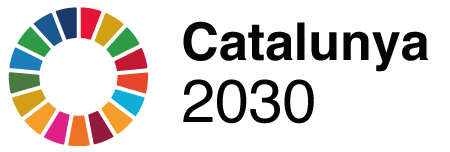Presentation
QualityRights is a World Health Organisation (WHO) tool kit designed to assess and improve quality and human rights in mental health and social care facilities.
The tool kit can be used by various national and international groups and organisations. It can be used either for a single assessment or as part of a national programme to improve facilities and services. It is of interest to establishments, services, specialists from all fields, policies, and anyone related to persons with disabilities. In this context, ‘establishment’ means any place where people with mental disabilities live or receive care, treatment, and/or rehabilitation, such as psychiatric hospitals, psychiatric units in general hospitals, and outpatient services, (including community mental health or substance abuse centres, primary care clinics, and outpatient care provided by general hospitals); day centres for people with mental disabilities, and social support centres (including orphanages, homes for the elderly, homes for children with intellectual or other disabilities, and other types of homes for ‘groups’ of people).
‘Person with a mental disability’ is understood to include people with mental, neurological, or intellectual disabilities, along with those with substance abuse disorders.
QualityRights documents use the term ‘psychosocial disability’, which has been adopted to include people who have received a diagnosis related to mental health or who self-identify with this term. Moreover, the terms ‘cognitive disability’ and ‘intellectual disability’ are also used and are designed to include people who have received a diagnosis related to their cognitive or intellectual functions, such as dementia and autism. The use of ‘disability’ in this context is important because it highlights the barriers that hinder the full participation in society of people with actual or perceived impairments, along with the fact that they are protected under the United Nations Convention on the Rights of Persons with Disabilities (CRPD). Therefore, the use of ‘disability’ in this context does not imply that people have an impairment or a disorder.
The instrument QualityRights provides tools, manuals, and guides along with an online training programme designed to transform attitudes and practices in mental health. Its aim is to promote the human rights of people with psychosocial, intellectual, or cognitive disabilities around the world by adopting a participatory approach.
The training is organised in 14 modules so that the different countries can put into practice the international human rights standards and have an influence on policies by developing the required skills and knowledge in order to deploy person-centred strategies which are based on recovery. This will help in delivering a quality care and support service and promoting mental health and well-being.
It covers the following five topics taken from CRPD, organised into standards and detection criteria:
- The right to an adequate standard of living and social protection (Article 28 of CRPD)
- The right to enjoy the highest possible level of physical and mental health (Article 25 of CRPD)
- The right to exercise the legal capacity and the right to personal freedom and personal safety (Articles 12 and 14 of CRPD)
- Protection against torture, cruel/inhuman/degrading treatment or punishment, exploitation, violence, and abuse (Articles 15 and 16 of CRPD)
- The right to live independently and to be included in the community (Article 19 of CRPD)
The QualityRights initiative was conceived by Michelle Funk and Natalie Drew Bold, who are members of the Mental Health Services and Policy Development Team, the Department of Mental Health and Substance Abuse, WHO. Key international experts from several countries have contributed to the design of the materials, including experts from various academic fields, service providers, and political advocacy groups.
In Catalonia, WHO has approached Support-Girona for the establishment of an alliance that should deploy the QualityRights instruments in institutions, services, specialists, and people, as well as provide training throughout Catalonia.
The accreditation will correspond to the promoters and owners of the initiative, which is WHO through the QualityRights programme.
The scope of the training will first take into account the establishment of alliances with the different target groups.


It takes part in the recruitment of young people benefiting from the Youth Guarantee Programme in Catalonia, in accordance with Order TSF/115/2018 of 12 July.
The programme is financed by the Youth Employment initiative and the European Social Fund, with a co-financing of 91.89%.
Foundations Register 1817. Register Department of Work, Social Affairs, and Families of the Government of Catalonia S05710.
Support-Girona is registered in the Register of Interest Groups of the Catalan Government Administration and the Public Sector. Identification number 315.
Municipal Register of Entities (Girona City Council) with number EH3234.
Census of Voluntary Entities of Catalonia 001907-000.











